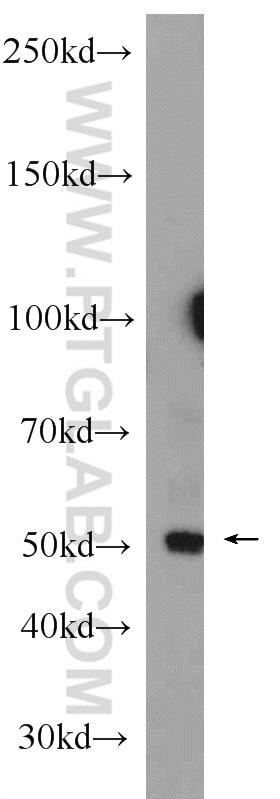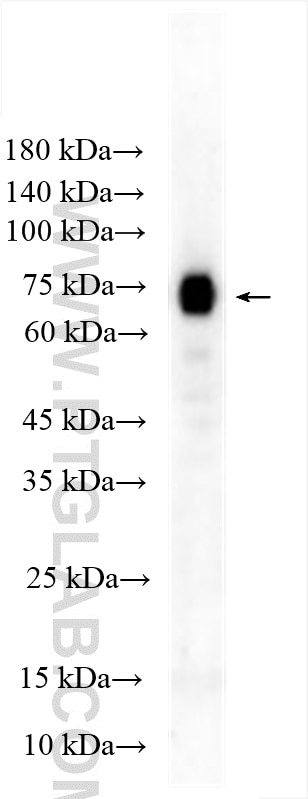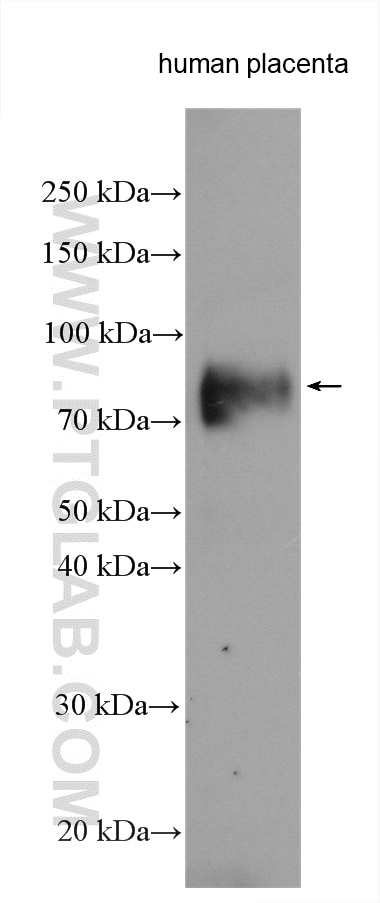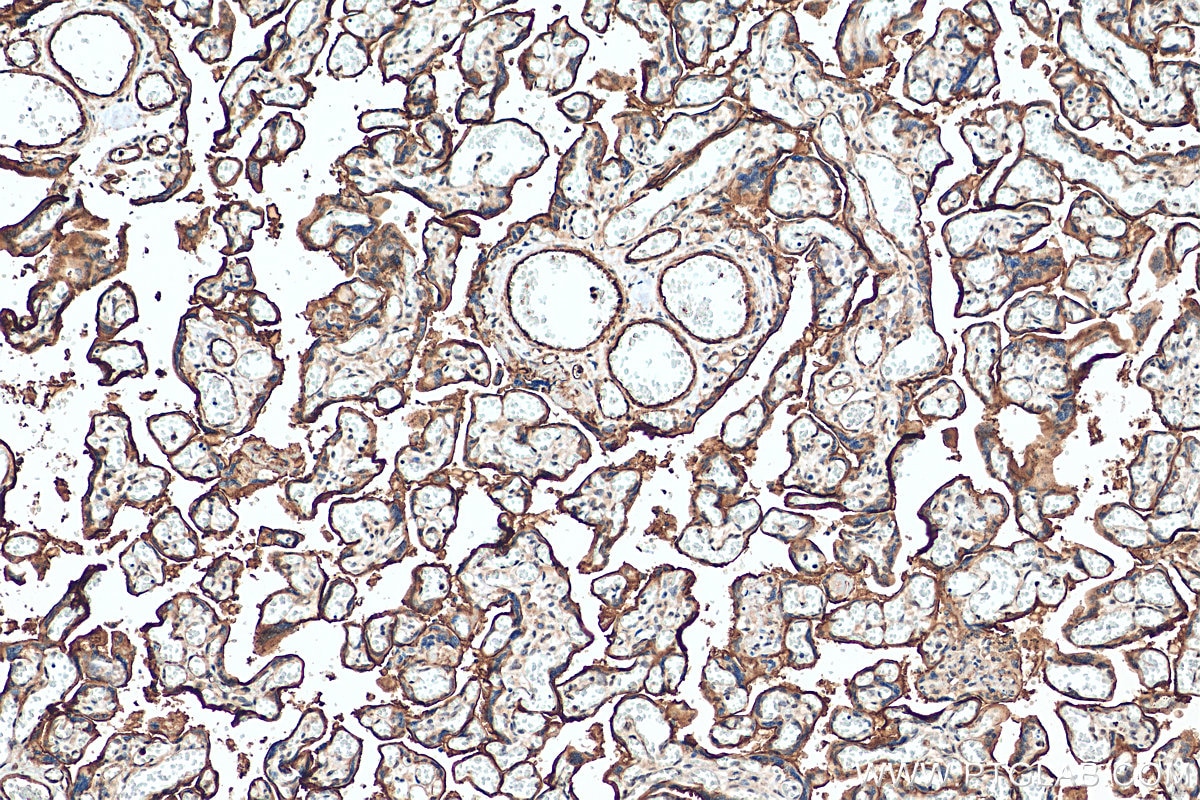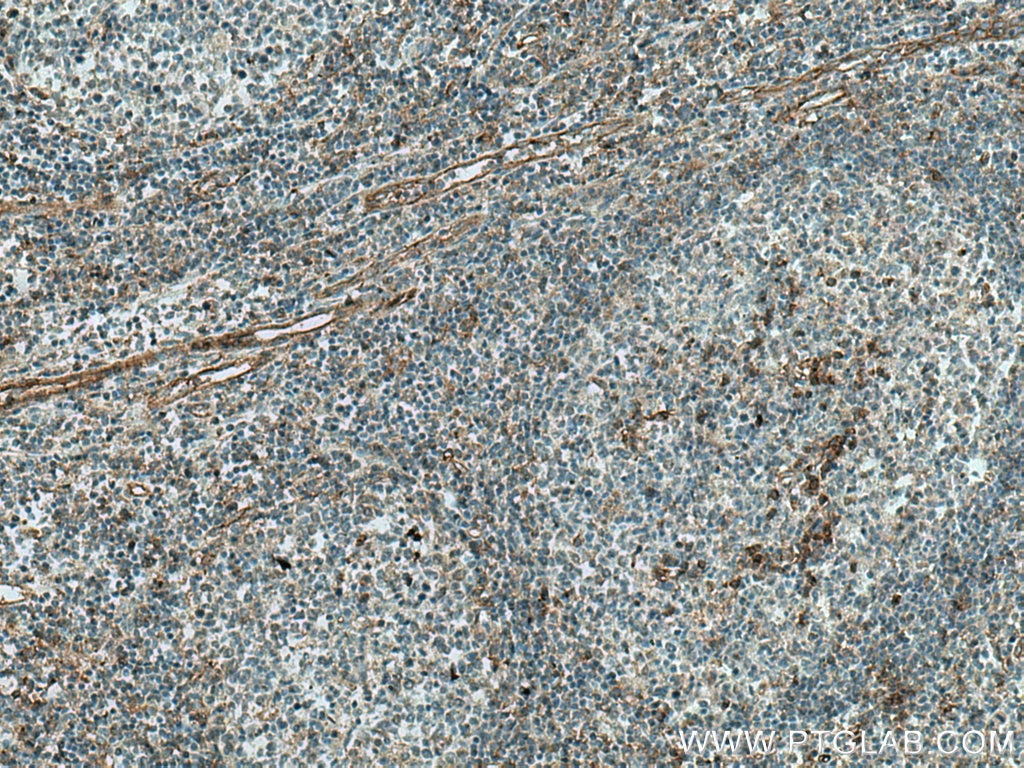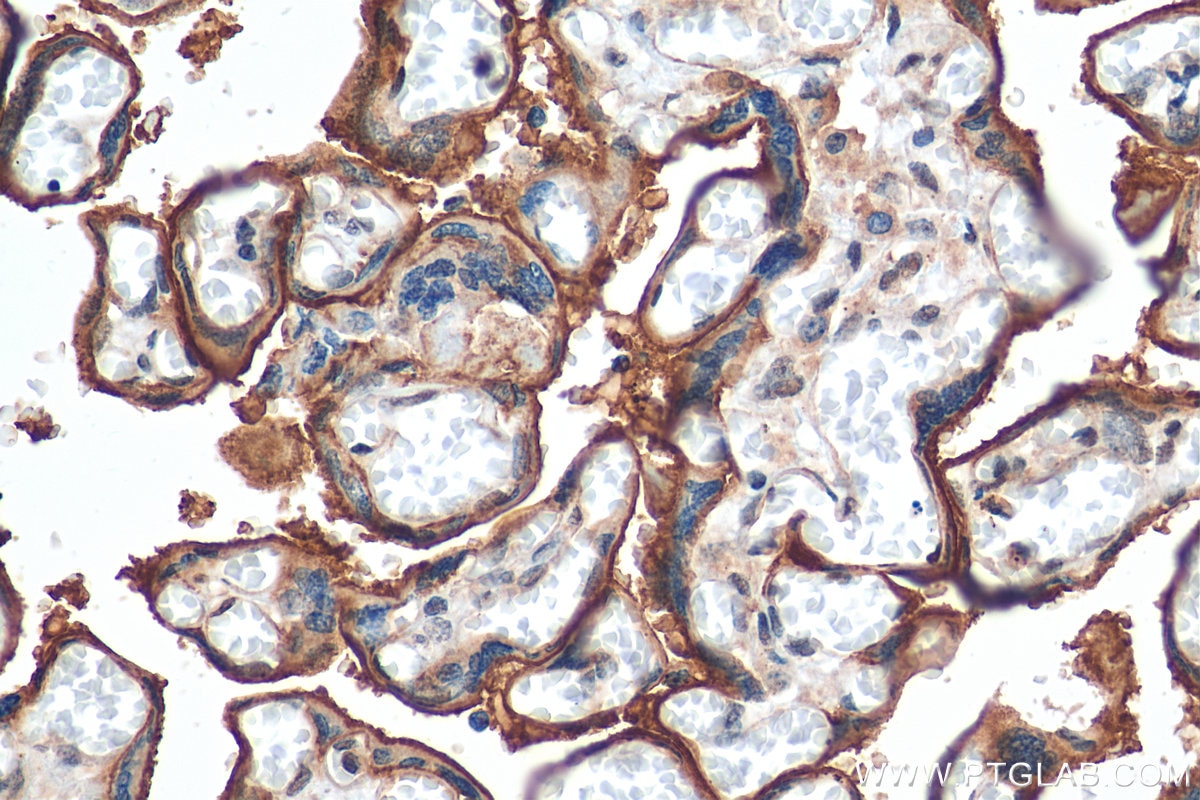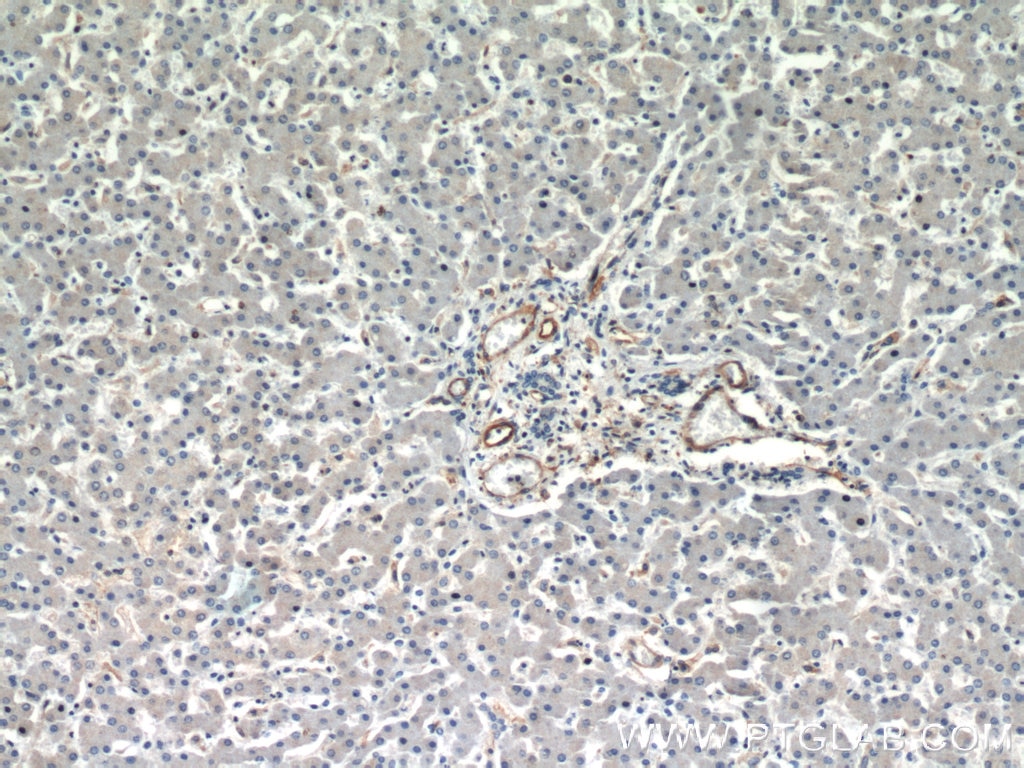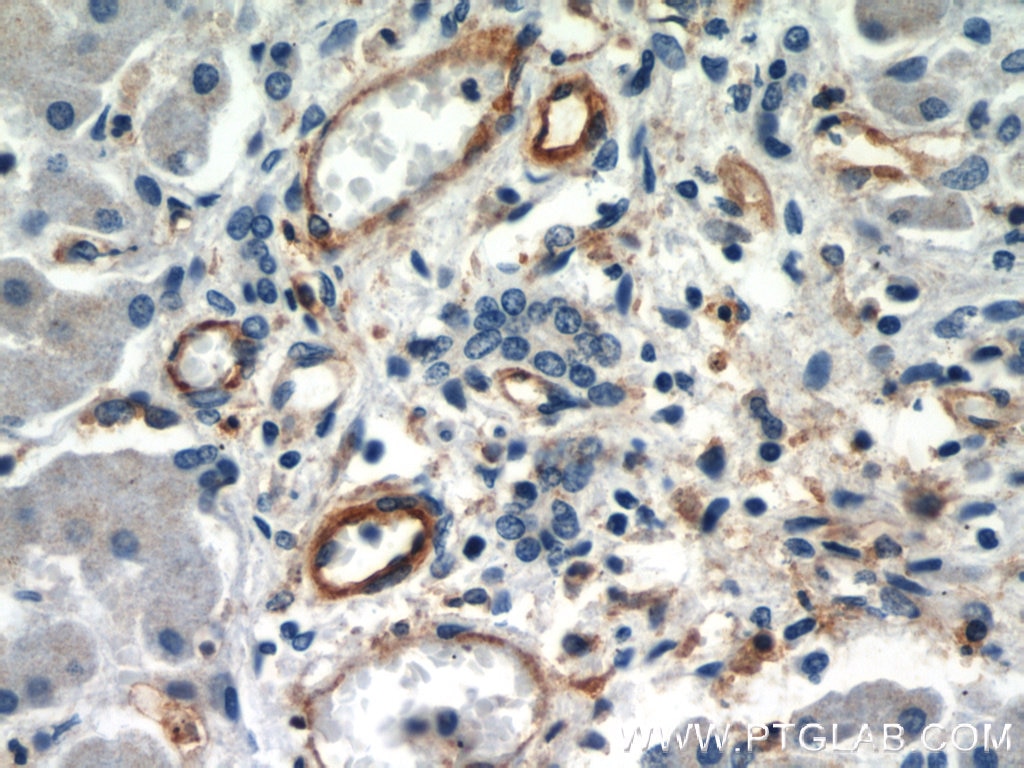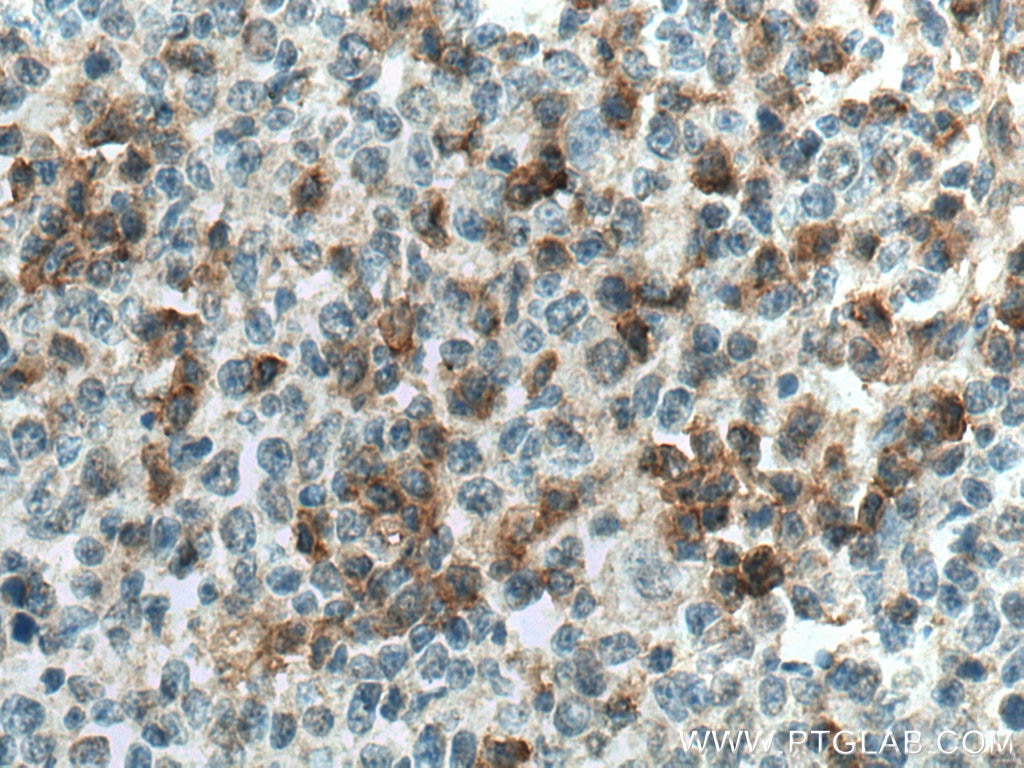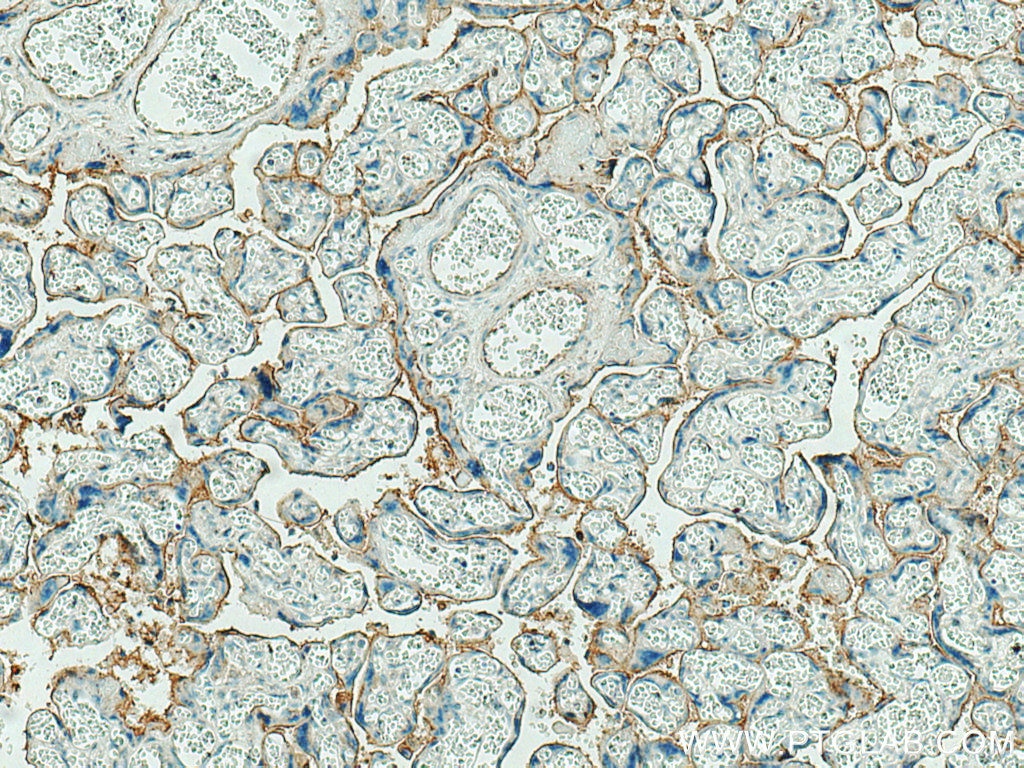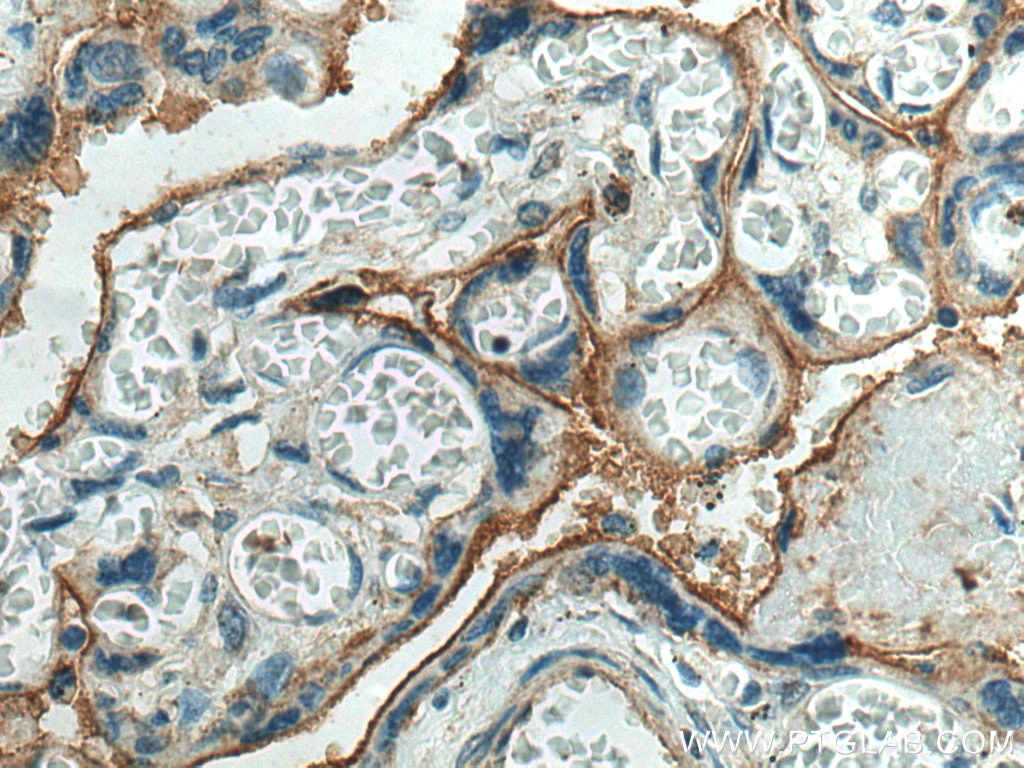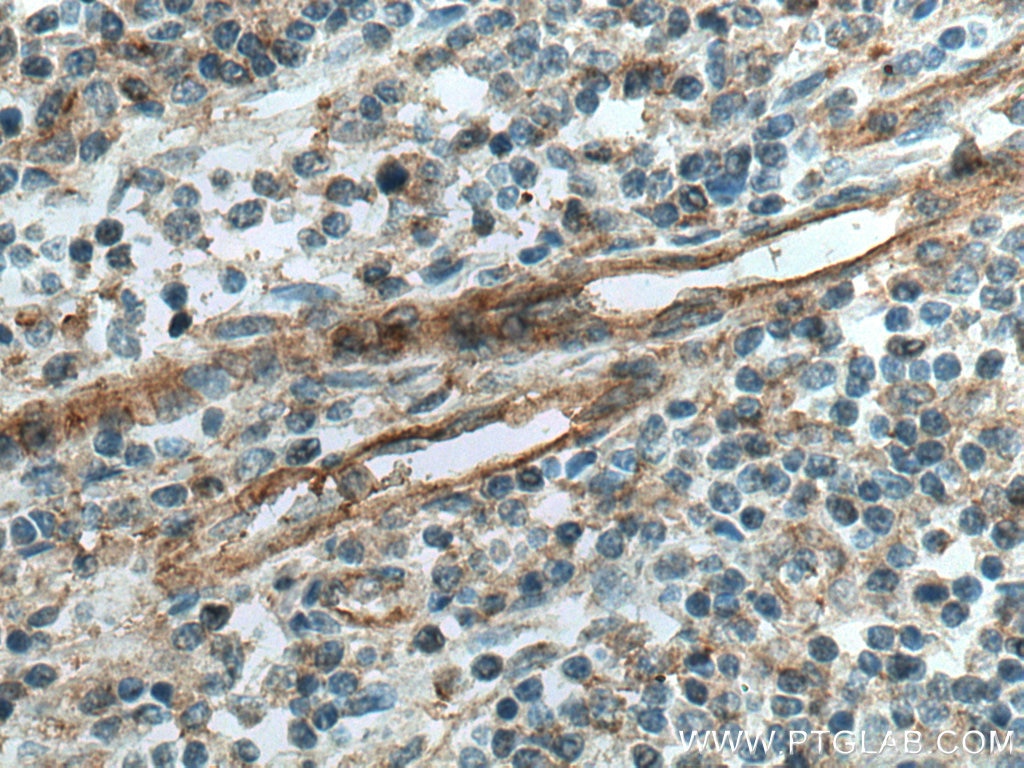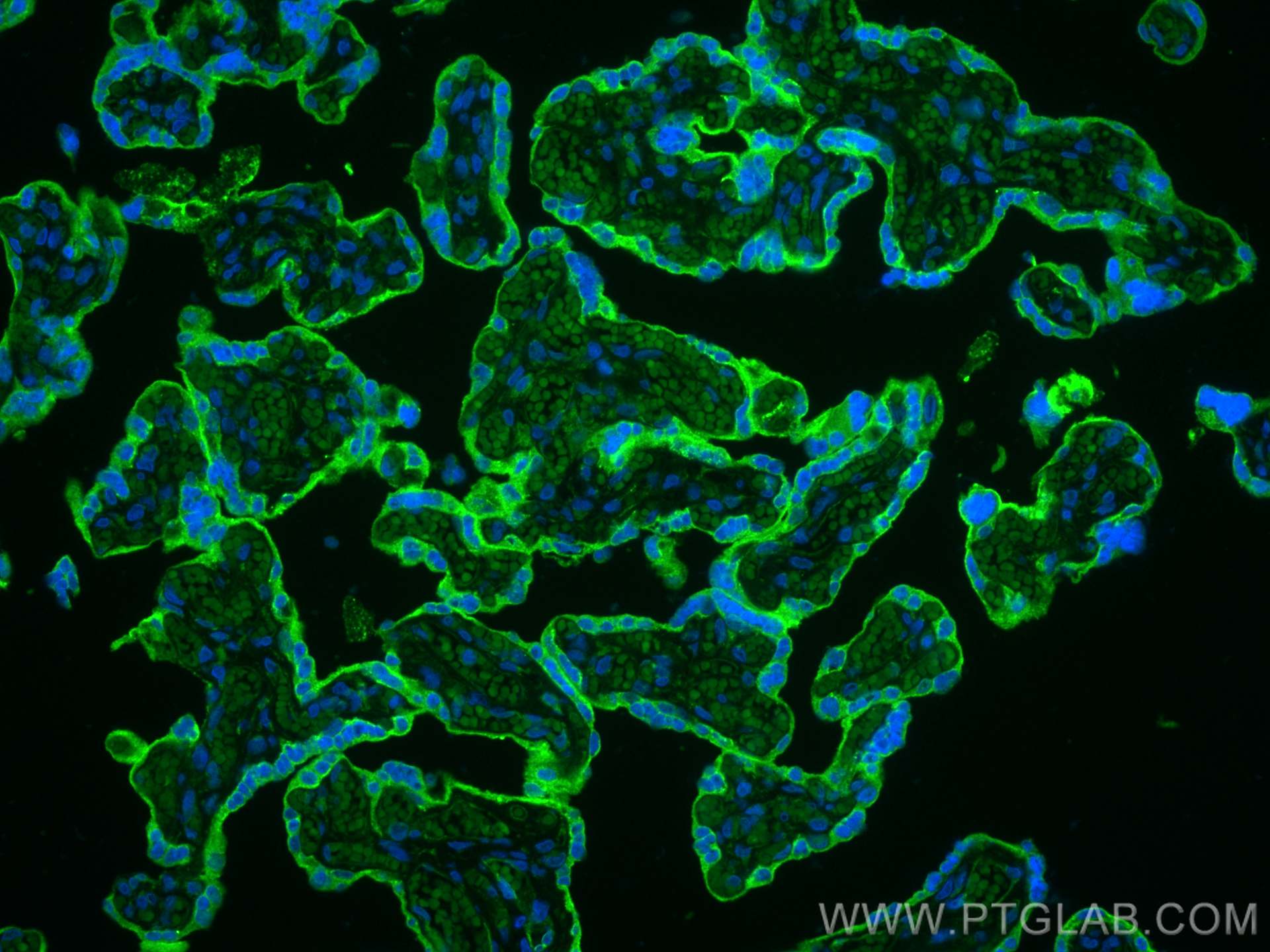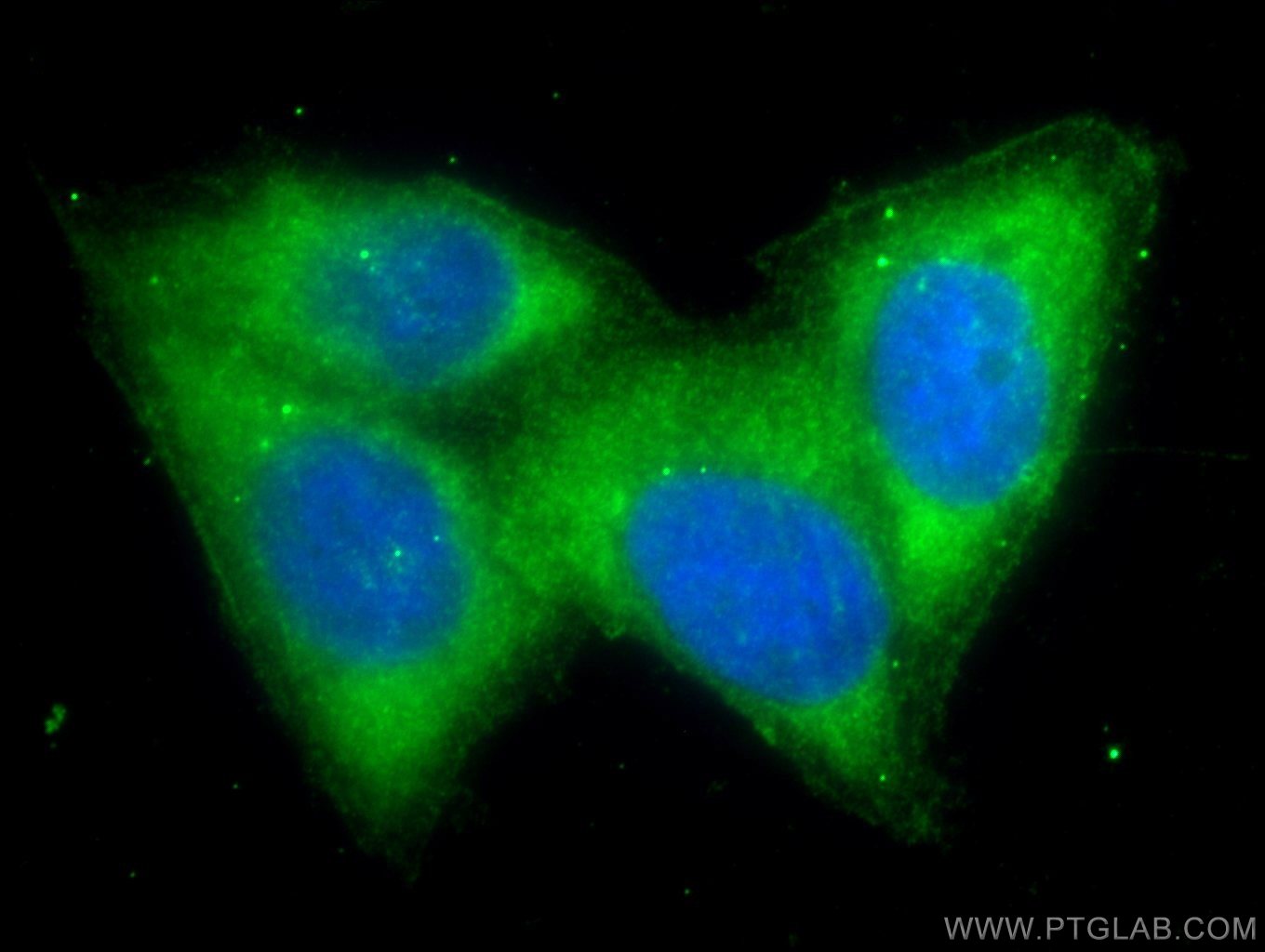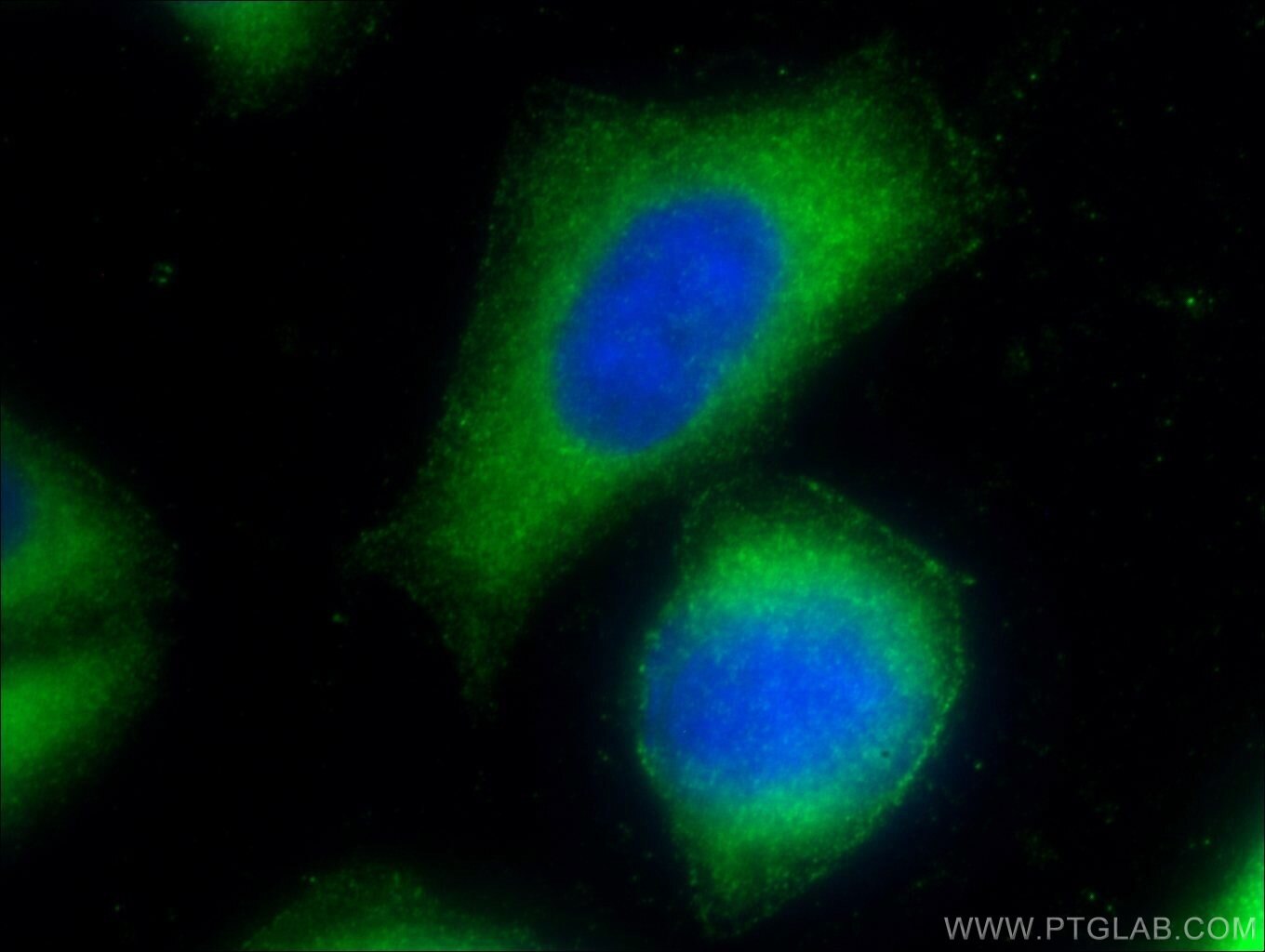CD39/ENTPD1 Polyklonaler Antikörper
CD39/ENTPD1 Polyklonal Antikörper für WB, IHC, IF/ICC, IF-P, ELISA
Wirt / Isotyp
Kaninchen / IgG
Getestete Reaktivität
human, Maus, Ratte
Anwendung
WB, IHC, IF/ICC, IF-P, ELISA
Konjugation
Unkonjugiert
Kat-Nr. : 14211-1-AP
Synonyme
Geprüfte Anwendungen
| Erfolgreiche Detektion in WB | Maus-Plazenta-Gewebe, humanes Plazenta-Gewebe |
| Erfolgreiche Detektion in IHC | humanes Plazenta-Gewebe, humanes Lebergewebe, humanes Tonsillitisgewebe Hinweis: Antigendemaskierung mit TE-Puffer pH 9,0 empfohlen. (*) Wahlweise kann die Antigendemaskierung auch mit Citratpuffer pH 6,0 erfolgen. |
| Erfolgreiche Detektion in IF-P | humanes Plazenta-Gewebe |
| Erfolgreiche Detektion in IF/ICC | HeLa-Zellen |
Empfohlene Verdünnung
| Anwendung | Verdünnung |
|---|---|
| Western Blot (WB) | WB : 1:200-1:1000 |
| Immunhistochemie (IHC) | IHC : 1:50-1:500 |
| Immunfluoreszenz (IF)-P | IF-P : 1:50-1:500 |
| Immunfluoreszenz (IF)/ICC | IF/ICC : 1:20-1:200 |
| It is recommended that this reagent should be titrated in each testing system to obtain optimal results. | |
| Sample-dependent, check data in validation data gallery | |
Veröffentlichte Anwendungen
| WB | See 4 publications below |
| IHC | See 2 publications below |
| IF | See 4 publications below |
Produktinformation
14211-1-AP bindet in WB, IHC, IF/ICC, IF-P, ELISA CD39/ENTPD1 und zeigt Reaktivität mit human, Maus, Ratten
| Getestete Reaktivität | human, Maus, Ratte |
| In Publikationen genannte Reaktivität | human, Maus, Ratte |
| Wirt / Isotyp | Kaninchen / IgG |
| Klonalität | Polyklonal |
| Typ | Antikörper |
| Immunogen | CD39/ENTPD1 fusion protein Ag5429 |
| Vollständiger Name | ectonucleoside triphosphate diphosphohydrolase 1 |
| Berechnetes Molekulargewicht | 58 kDa |
| Beobachtetes Molekulargewicht | 50 kDa,70-100 kDa |
| GenBank-Zugangsnummer | BC047664 |
| Gene symbol | CD39 |
| Gene ID (NCBI) | 953 |
| Konjugation | Unkonjugiert |
| Form | Liquid |
| Reinigungsmethode | Antigen-Affinitätsreinigung |
| Lagerungspuffer | PBS with 0.02% sodium azide and 50% glycerol |
| Lagerungsbedingungen | Bei -20°C lagern. Nach dem Versand ein Jahr lang stabil Aliquotieren ist bei -20oC Lagerung nicht notwendig. 20ul Größen enthalten 0,1% BSA. |
Hintergrundinformationen
ENTPD1(Ectonucleoside triphosphate diphosphohydrolase 1) is also named CD39, NTPDase 1, and Ecto-ATPDase 1 and belongs to the GDA1/CD39 NTPase family. In the nervous system, it can hydrolyze ATP and other nucleotides to regulate purinergic neurotransmission. It is a noncovalent tetrameric protein and detergent inhibition of enzymatic activity is caused by dissociation of ectoapyrase tetramers into monomers(PMID: 9733785 ). And it is a 70- to 100-kDa protein that is heavily N-glycosylated(PMID:7930580). This protein has 6 glycosylation sites and 3 isoforms(58 kDa, 59 kDa, and 34 kDa) produced by alternative splicing.
Protokolle
| PRODUKTSPEZIFISCHE PROTOKOLLE | |
|---|---|
| WB protocol for CD39/ENTPD1 antibody 14211-1-AP | Protokoll herunterladen |
| IHC protocol for CD39/ENTPD1 antibody 14211-1-AP | Protokoll herunterladenl |
| IF protocol for CD39/ENTPD1 antibody 14211-1-AP | Protokoll herunterladen |
| STANDARD-PROTOKOLLE | |
|---|---|
| Klicken Sie hier, um unsere Standardprotokolle anzuzeigen |
Publikationen
| Species | Application | Title |
|---|---|---|
Int J Biol Sci CD73/NT5E-mediated ubiquitination of AURKA regulates alcohol-related liver fibrosis via modulating hepatic stellate cell senescence | ||
Genomics Proteomics Bioinformatics Single-cell Immune Landscape of Human Recurrent Miscarriage. | ||
Oncotarget Expression of CD38 in myeloma bone niche: A rational basis for the use of anti-CD38 immunotherapy to inhibit osteoclast formation. | ||
Am J Physiol Gastrointest Liver Physiol Water intake accelerates ATP release from myofibroblast cells in rats: ATP-mediated podoplanin-dependent control for physiological function and immunity. | ||
BMC Med Genomics Identification of differential gene expression profile from peripheral blood cells of military pilots with hypertension by RNA sequencing analysis. | ||
J Gerontol A Biol Sci Med Sci Hypoxanthine Induces Signs of Bladder Aging with Voiding dysfunction and Lower Urinary Tract Remodeling |
